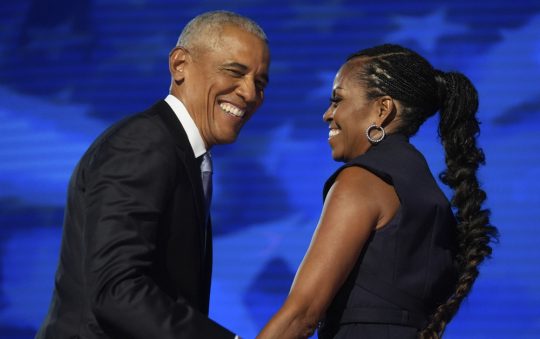
“We are Trayvon Martin, Mike Brown, Ezell Ford, Redel Jones”- and numerous others.” These may be sincere, but are mostly transient expressions of solidarity by Black people with high profile crime victims of police murder. Of course, they do reflect kindred feelings of loss and outrage over continuing injustice against Black people throughout America. But these feelings have not been sufficiently troubling to cause sustainable, not just temporary or episodic outrage. High profile police (and vigilante) killing unarmed Black men and boys is only the tip of the iceberg. They do, however, highlight an ongoing pattern of injustice, which unfortunately, is reinforced by Blacks’ conditioned silence. On-going race-based injustice against Blacks, in my opinion, warrants push-back just short of armed resistance. We need sustainable, unapologetic expressions of discontent coupled with concrete plans, proposals and action to effectively challenge the oppressive (for Black people) status quo.
Black Lives have always mattered but Black people do not always act like it. Most Blacks know racism still exists but are conditioned to feel inferior to whites and often become complicit in their own oppression. I write about this periodically, because Blacks’ collective silence reinforces the barriers to their own wellbeing. While high-profile cases grab headlines and heartstrings, temporarily, other less heralded, but equally egregious, ongoing atrocities against Black people have become a crippling norm. (Public education’s failure to educate Black students and Black homeowners disproportionately suffering foreclosures as a result of the economic meltdowns, for example, are in some ways just as egregious as high profile cases of police killing unarmed Black men and boys.
The implications of systemic race-based injustice and inequity are profoundly troubling and require sustained focus by the Black community and its leadership. It cannot be overly emphasized that collectively, Black silence concerning police violence and political, economic and educational inequities help to perpetuate a status quo that is clearly inimical to our own best interests. Silence on major issues affecting the Black community since the 1960’s has seriously crippled Black progress. New thinking, planning and strategic alternatives are indispensable for a safer more prosperous group-oriented (as opposed to an individualistic and materialistic oriented) future. This is an important, though rarely addressed distinction.
Civil rights gains were the culmination of centuries of struggle but for Blacks, the fight for freedom and justice continues. Those gains have, in many ways, proved fleeting and now, a consensus on Black’s progress and status-and what to do about it-no longer exists. Blacks seem to have a hard time understanding that individual attainment, though laudable, does not necessarily improve the condition of Blacks generally. In fact, middle-class Blacks’ internalization of Whites’ individualistic and materialistic values has created an ever-growing divide between them and their poorer brethren. Although many may consider this chasm unavoidable, the fact is, collaboration between middle-class and all other Blacks is not only possible, but indispensable for the broad united front needed to achieve lasting positive change.
Black unity has evaporated much like the concentration of Blacks in some urban cities. In Los Angeles, the huge immigration of Latinos requires not just rethinking, but a reordering of political priorities to protect and rebuild Black strength commensurate with their numbers in the population. Coalitions and alliances with other racial and ethnic groups are clearly necessary, but it is essential that Blacks participate in such arrangements from a position of strength, not as a footnote to diversity or in any way supportive of a mythical post-racial society. Solutions require unity based on explicit, not assumed, common ground. (Given Blacks’ conditioning and propensity for accommodation, a trait exemplified by former president, Barack Obama, establishing and maintaining common ground is extremely difficult but critically important.)
Blacks’ reassessing their values and principles is crucial for reframing and reclaiming both cultural and political capital. This requires acknowledging moral and ethical values as fundamental for the Black community, and especially its leaders. This is hard to accomplish because their values now largely mirror those of America’s White majority, which underscores the need for reassessing the performance and accountability of Black leadership, elected and otherwise. It would also be a starting point in crafting a new reality for the community wherein the group, not the individual, is the primary focus.
This daunting undertaking requires a sea change in Blacks’ thinking and behavior; community education, organizing and mobilization are all key ingredients. But a renewed social and political paradigm based on moral and ethical values is most important.
All of this is may be foreign and/or sound naïve to many Blacks. But think for a moment, what are the alternatives? Continuing current social and political practices that are clearly not in our own best interests? Emulating behavior and standards that perpetuate a status quo that guarantees second-class citizenship? Obviously, Blacks themselves must lead the fight for changes that lead to sustainable justice and equity.
Injustice and inequality for Black people continues with only occasional superficial abatement. Yet, increasingly complex 2Ist Century barriers facing Black people warrant action akin to a call to arms. To say “We all are the victims” in the murderous killing of unarmed Black people by the police is not enough. Real change requires new thinking, new commitment and top-down accountability grounded in moral and ethical standards. Anything less will reinforce conditions that are, by any measure, detrimental to our wellbeing and survival.
e-mail: l.aubry@att.net







